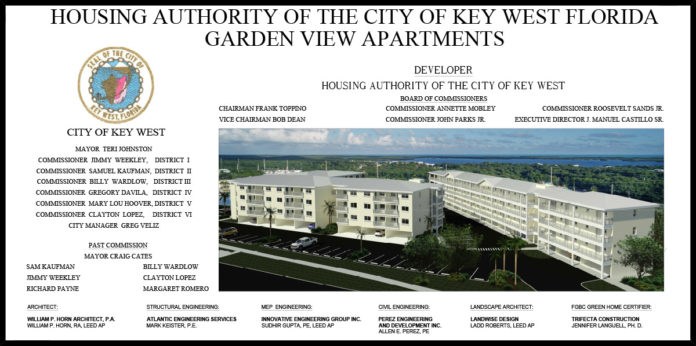Soon after Hurricane Irma swept the Keys in 2017, decimating most of its de facto affordable housing, former Gov. Rick Scott “gifted” the Keys with the right to build 1,300 more units — above and beyond Monroe County’s existing, yet declining, number of permits before it reaches buildout in 2023.
The City of Marathon was the first to accept its share of 300, followed by the Village of Islamorada and Key West. Monroe County adopted a wait-and-see attitude after the first legal challenge was filed in November 2018. The challenge alleged it would impede hurricane evacuation and be detrimental to quality of life in the Keys.
Eventually, three plaintiffs — representing all areas of the Keys — piled on and the cases were consolidated into one hearing, presided over by a state administrative law judge. The hearing was postponed at least once and finally conducted in late 2019. Just last week, the judge ruled in favor of the cities.
“The judge agreed with us — that the plan for accepting the 1,300 building permits was consistent with the evidence at trial, and consistent with the Area of Critical Concern program,” said Bart Smith, an attorney with Key West’s Smith Hawk law firm, who represented the interests of Marathon and Islamorada.
Marathon has already approved project plans contingent on the legality of the new building permits.
“The city will have to go over this and figure out, procedurally, how we want to allocate the permits,” said George Garrett, the city’s planning director. “The way we have been handling it is to award affordable building permits out of our own existing pool for projects that need 10 or less, and anything over that would more appropriately come from the new pool of 300.”
Right now, there is a preliminary plan to allocate about 130 units among four projects — Boatworks on the gulfside of Marathon near 39th Street, Seaview Commons on Coco Plum, Serenity Cove on the site of the former Longhorn Lodge and a project on the west end of Marathon airport.
The City of Key West will likely draw 104 permits from its pool of 300 for the Garden View Apartments project on Stock Island and more for the Bahama Village project that is still in its planning stages. And Islamorada has a project pending of about 20 units that would fit the criteria, as well.
When the 1,300 permits were allocated to Monroe County, there were stipulations. For example, tenants must agree to evacuate 48 hours before a hurricane while other Keys residents are held to a standard of 24 hours. Also, the units must be rentals — not units for sale — intended for affordable and workforce housing.
Earlier this year, the Monroe County Board of County Commissioners voted 3-2 to direct staff to begin the process to accept the 300 it is allocated. The coronavirus emergency has derailed those efforts for now.
County Commissioner Michelle Coldiron wants the county to accept its allocation of 300.
“I want to know how we can scatter these building permits to meet two different needs — ‘takings’ cases, and workforce housing,” she said.
The plaintiffs have until May 9 to file exceptions to the judge’s order. Then, Smith said, the Department of Economic Opportunity can accept or reject the exceptions in part or in whole. The plaintiffs will also have the ability to file an appeal in a district court of appeals.
“I am not going to count my chickens until they hatch,” said Ty Harris, Islamorada’s planning director. “The DEO still needs to review the exceptions and the judge’s order.”
The petitioners are being represented by the firm of Robert N. Hartsell, based in Pompano Beach. Attorney Richard Groso — a well-known challenger of Florida growth management policy — is also on the petitioners’ legal team.
In 2023, the state will no longer issue new building permits for the Florida Keys. The number of remaining building rights, even including the 1,300 new permits, is far less than the number of undeveloped properties. Takings lawsuits, where the property owner sues government because he or she cannot develop the land, may be slowed by the ability to grant affordable housing permits. Legal precedent suggests that any beneficial use — whether that’s the ability to build a modest, deed-restricted home instead of a market rate mansion — would exempt governments from liability.


























